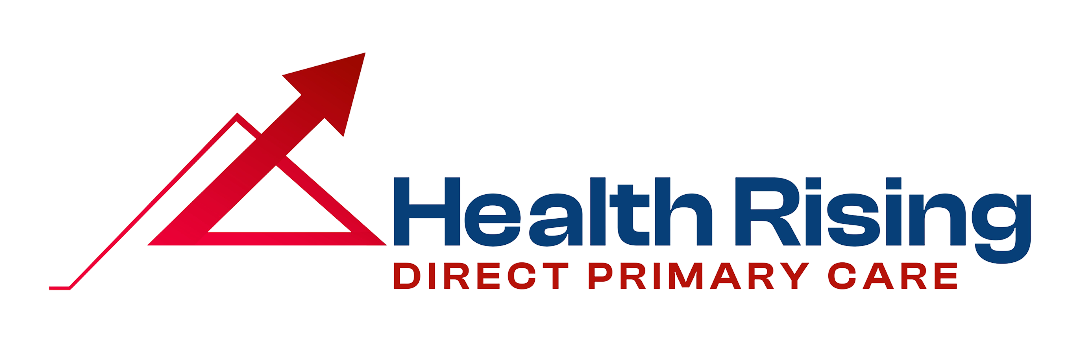Chronic stress often feels like a normal part of life. It hums quietly in the background, so familiar that many people hardly notice its growing impact. Yet behind the scenes, the hidden costs of chronic stress steadily chip away at health and well-being. Reclaiming your health begins with recognizing these hidden costs and taking small, steady steps toward restoration.
At Health Rising DPC, we believe that real healing comes from seeing the true weight of stress and empowering yourself with tools that work for the long haul.
How Chronic Stress Quietly Damages Your Health
Stress is not always loud. It can settle into the body so subtly that the damage only becomes visible when major symptoms appear. Under chronic stress, the body produces high levels of cortisol and adrenaline for longer periods than nature ever intended.
Over time, these hormones cause systemic disruption. Chronic inflammation rises. Hormonal imbalances develop. The immune system weakens. Every internal system becomes vulnerable when the body remains in survival mode for too long. Without relief, these pressures increase the risk for cardiovascular problems, metabolic conditions, and even autoimmune diseases.
Healing begins with understanding that the body is not failing. It is doing its best to adapt to a state it was never meant to endure for so long.
The Silent Erosion of Mental and Emotional Well-Being

Mental health can erode just as silently. Chronic stress alters brain chemistry and function, making it harder to regulate emotions or find joy in everyday activities. A person might find themselves more irritable, more anxious, or more withdrawn without realizing why.
Stress slowly drains resilience. Emotional reactions become sharper, patience shortens, and optimism feels harder to access. Persistent low moods, emotional exhaustion, and even depression often trace back to stress left unaddressed for too long.
Blaming yourself for not coping “better” only deepens the damage. Recognizing the role of chronic stress reframes the struggle with greater compassion and clarity. For more on how mindset shapes well-being, read “Why Your Self-Image is the Biggest Predictor of Your Long-Term Health”.
Physical Symptoms You Might Be Ignoring
Chronic stress does not always show up as panic attacks or meltdowns. It often speaks through the body in subtler ways.
Common signs include unexplained fatigue, frequent headaches, muscle tension, digestive problems, restless sleep, and a weakened immune response. Many people dismiss these symptoms as signs of aging or simply being “too busy.”
However, the body is communicating. These symptoms are not random. They are signals that stress is asking for attention, not suppression.
Ignoring these signs paves the way for more serious health consequences. Listening and responding now can protect health and vitality for years to come.
Why Quick Fixes Fail to Heal Chronic Stress

In a fast-paced world, quick fixes for stress are everywhere. Endless cups of coffee, binge watching television, scrolling through social media, or distracting ourselves with more work may seem harmless. Yet these tactics often worsen the underlying imbalance.
Temporary relief does not address the root cause. In fact, it usually prolongs the cycle. Masking stress with stimulation or distraction adds another layer of exhaustion to an already strained system.
True healing requires addressing stress where it lives—in the body’s systems, in daily routines, and in emotional habits. There is no shortcut to deep recovery, but there is a clear and hopeful path forward. To learn more about why small wins are more powerful than quick fixes, visit “Why Quick Fixes Fail and Small Wins Matter for Lasting Health”.
The Health Rising Pathway to Reclaiming Your Health from Chronic Stress
At Health Rising DPC, we help patients build lasting solutions that heal from the inside out. Reclaiming health from chronic stress is not about willpower. It is about creating conditions that allow the body and mind to restore themselves naturally.
Nutrition for Stress Resilience
The body draws strength from the food it receives. Whole, nutrient-dense foods rich in antioxidants, vitamins, and minerals fortify the body’s ability to manage stress.
Colorful vegetables, healthy fats, clean proteins, and fiber-rich foods support stable blood sugar, balanced hormones, and a healthy gut-brain connection. Nutrition provides the raw materials the body needs to rebuild resilience. For more on whole foods, see “Nutrition Confusion: Why Whole Foods Matter More Than Macros”.
Movement to Balance the Nervous System
Movement is medicine for a stressed nervous system. Gentle, consistent exercise such as walking, stretching, yoga, or strength training helps release built-up tension and recalibrates the body’s stress response.
The focus is not on exhausting workouts but on restoring a natural rhythm between effort and rest. Movement becomes a powerful antidote to the wear and tear of chronic stress.
Prioritizing Restorative Sleep
Sleep is where the body performs its deepest healing. Chronic stress often disrupts sleep, leading to a cycle of exhaustion and vulnerability.
Prioritizing a regular sleep schedule, creating a calming bedtime routine, and limiting exposure to screens or stimulants at night gives the body the chance to recover. Sleep is not a luxury. It is an essential pillar of reclaiming health. For practical sleep tips, visit “The Power of Restorative Sleep for Long-Term Health”.
Strengthening Mindset and Emotional Regulation
How the mind responds to stress shapes the body’s experience of it. Practicing mindfulness, gratitude, and emotional regulation exercises builds resilience at the root level.
Simple techniques like deep breathing, positive reframing, and setting healthy boundaries strengthen emotional stamina. Over time, these habits retrain the brain to face challenges without defaulting to fear or overwhelm.
Building Real Social Connections
Humans are wired for connection. Chronic stress isolates people emotionally, but real healing thrives in relationships.
Nurturing authentic friendships, joining supportive communities, and seeking moments of real connection act as natural buffers against stress. Shared laughter, encouragement, and honest conversations nourish the nervous system in profound ways. Learn more in “How Social Connection Outperforms Medication for Well-Being”.
Avoiding Harmful Substances
Substances like excessive caffeine, alcohol, or nicotine often disguise themselves as coping tools. In reality, they deepen the physiological strain of chronic stress.
Choosing healthier outlets for relaxation and energy supports the body’s efforts to heal, rather than creating new obstacles along the way.
Small Wins That Make a Big Difference
Reclaiming health from chronic stress is not about grand, sweeping changes. It is about choosing small, steady wins every day.
Each nutritious meal, each walk in fresh air, each night of better sleep builds momentum. Progress might feel slow at times, but it compounds over weeks and months into transformation.
Patience is a crucial part of the process. Healing from chronic stress requires offering yourself the same kindness and persistence you would offer a dear friend.
Small victories are not small at all. They are the foundation of lifelong resilience.
FAQs on the Hidden Costs of Chronic Stress
How does chronic stress impact your health over time?
Chronic stress keeps the body stuck in survival mode, leading to inflammation, hormonal imbalances, and immune system suppression. Over time, this increases vulnerability to chronic diseases and emotional health challenges.
Can chronic stress cause physical symptoms even if I feel fine emotionally?
Yes. Chronic stress often first shows up through physical symptoms like fatigue, headaches, digestive issues, and frequent colds even before emotional symptoms become obvious.
What are early signs of chronic stress that people often overlook?
Early signs include difficulty sleeping, low energy, irritability, feeling overwhelmed, frequent illness, and muscle tension. These subtle shifts often precede more serious health problems.
Is it possible to fully recover from chronic stress damage?
Recovery is absolutely possible. The body is designed to heal when given the right support through nutrition, sleep, movement, connection, and mindset shifts.
How can nutrition help in managing chronic stress?
Nutrition provides the building blocks the body needs to stabilize hormones, reduce inflammation, balance the nervous system, and support emotional well-being. Whole foods are essential allies in stress recovery.
What role does sleep play in healing from chronic stress?
Sleep restores the nervous system, regulates stress hormones, and repairs tissue damage caused by prolonged stress. Prioritizing sleep is critical for lasting recovery.
Why are social connections important for stress recovery?
Social connection reduces cortisol levels, boosts positive emotions, and provides emotional support. Authentic relationships act as natural medicine for stress.
How does Health Rising DPC support patients dealing with chronic stress?
Health Rising DPC provides personalized, root-cause care that addresses chronic stress through lifestyle medicine. We empower patients with practical tools to heal physically, mentally, and emotionally.
Conclusion: Reclaiming Your Health from the Hidden Costs of Chronic Stress
The hidden costs of chronic stress often go unseen until they have already affected every part of your health. Awareness is the first step toward real change. If you are ready to reclaim your health, Health Rising DPC is here to help you address the root causes and build a future of resilience.
Take the next step for your health. Schedule a visit with Health Rising DPC and discover a pathway that supports you in reclaiming well-being—one small, meaningful win at a time.











